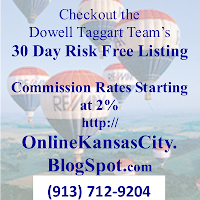The Ten Most Common Mistakes to Avoid When Obtaining a Home Mortgage in Kansas City, Olathe, and Overland Park!
You are about to make what will most likely be the largest transaction of your life: your home mortgage. Unfortunately, many Kansas City home buyers do not take the time to research their mortgage options. Researching the mortgage options takes little time compared to thousands of dollars wasted with the wrong mortgage. Don't you agree?
Doesn't it make sense to become as completely informed home buyer before you buy your next home?
1. Start with Finding a Good Mortgage Lender - This is the most important choice you can make when starting the mortgage process. If you don't trust your lender, you are in for a long and stressful home-buying experience. Click to View Our List of Mortgage Lenders.
2. Pricing - Don't get sucked into fictitious low promises by unscrupulous mortgage companies. Before you agree to mortgage promises, get the advertised rate in writing. Make sure there is enough time to close on your mortgage loan. Some mortgage companies may make these "promises" but will try changing the rate prior to closing. They may claim that your "lock-in" rate has expired so make sure you have the expiration date in writing. In some cases, the lender may even try to delay your closing to break the "lock-in" rate. In other cases the delay may be beyond the lender's control. Make sure to allow yourself plenty of time for closing. Delays in the process are common and everyone (builders, title companies, even yourself) is responsible.
3. Mortgage Programs - You will see several mortgage programs that offer special low-interest rates. Keep in mind that they may not be the best program for your situation. Make your mortgage lender explain what programs they feel best serve your needs and more importantly, why.
4. Fixed or Adjustable Rate Mortgage (ARM) - Conventional thinking is that fixed is always better and while this is sometimes true, it is not always the case. The key here is to ask, "How long am I going to live at this home?" An ARM can actually be a better choice if you are going to be in the home for a short time. ARMS are great for Relocation home buyers. In general, the longer you plan on staying in your home, the better a fixed rate mortgage will suit your needs.
5. Don't try to bottom out the market - Deciding when to lock in to a mortgage rate can be difficult. Many people will float, trying to guess when rates have hit bottom. Unfortunately, a lot of times they will wait too long and end up with a much higher interest rate. There is nothing wrong with floating but keep a close eye on economic indicators. A good mortgage officer or keeping and ear out for the nightly news can be an excellent source of information on the latest interest rate activity. As closing nears, it might be worth locking in.
6. Negotiate problems prior to closing - Its common for a problem to arise before closing on your home. Waiting until closing will rarely be in your best interest. For instance, if you accept $400 at closing in lieu of the seller making a repair and after closing you find that the repair will actually cost $800, you've obviously made a poor decision. Whether the builder agreed to add an item and has not or the seller has made a repair that is not acceptable to you, discussing a solution prior to closing will give both parties time to analyze and determine options. Be proactive in getting repairs completed. Don't waste until the last second and negotiate poorly.
7. Be prepared for closing costs - In addition to the down payment, you will be required to pay fees and other closing costs at the time of the final transaction. Closing costs typically range from 2 percent to 6 percent but will be dependent upon your mortgage. Lenders must provide you with a "Good Faith Estimate" within 3 days of your loan application. The "Good Faith Estimate" will breakdown all costs so that you may know what to expect at closing. Be prepared to view your "Good Faith Estimate" before closing.
8. Close at the end of the month - When making a mortgage payment, you will be paying interest that has accrued from the previous month. Upon closing however, your lender will charge you prepaid interest for the date the loan is recorded through the end of that month. Therefore, one way to lower your closing costs is to close in the latter part of the month. This will lower the amount of prepaid interest that you must pay at closing.
9. Look out for hidden fees - Check for certain miscellaneous fees such as inspection, notary, and document preparation. These types of fees can mean hundreds of dollars in closing costs. Remember that this is your money at stake. Never should you be afraid to ask for explanations of fees you are being charged.
10. Communication - Make sure that your real estate agent, closer and mortgage officer are communicating well. It is important that your real estate agent communicates added cost like inspections to the loan officer and closer promptly so that you are not hit with any surprises when it gets close to closing.
RE/MAX sells more homes than any other real estate company.
For a reason...should we talk?
Contact us at 913.712.9204
Another blog post written by: Dowell Taggart Team
Another blog post written by: Dowell Taggart Team
|
|
|
|
Comments are appreciated! Go ahead and add your 2 cents . . .








0 Comments
Thank You for commenting on our Blogger blog, http://OnlineKansasCity.Blogspot.com!
Just an FYI: Spam will not be published.